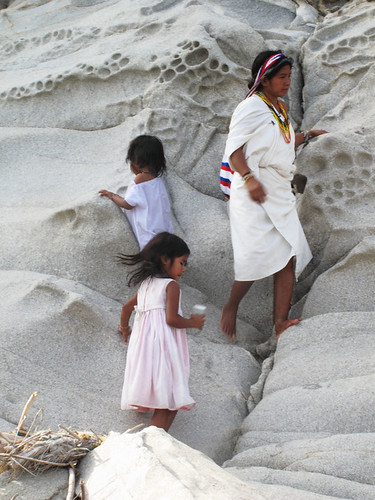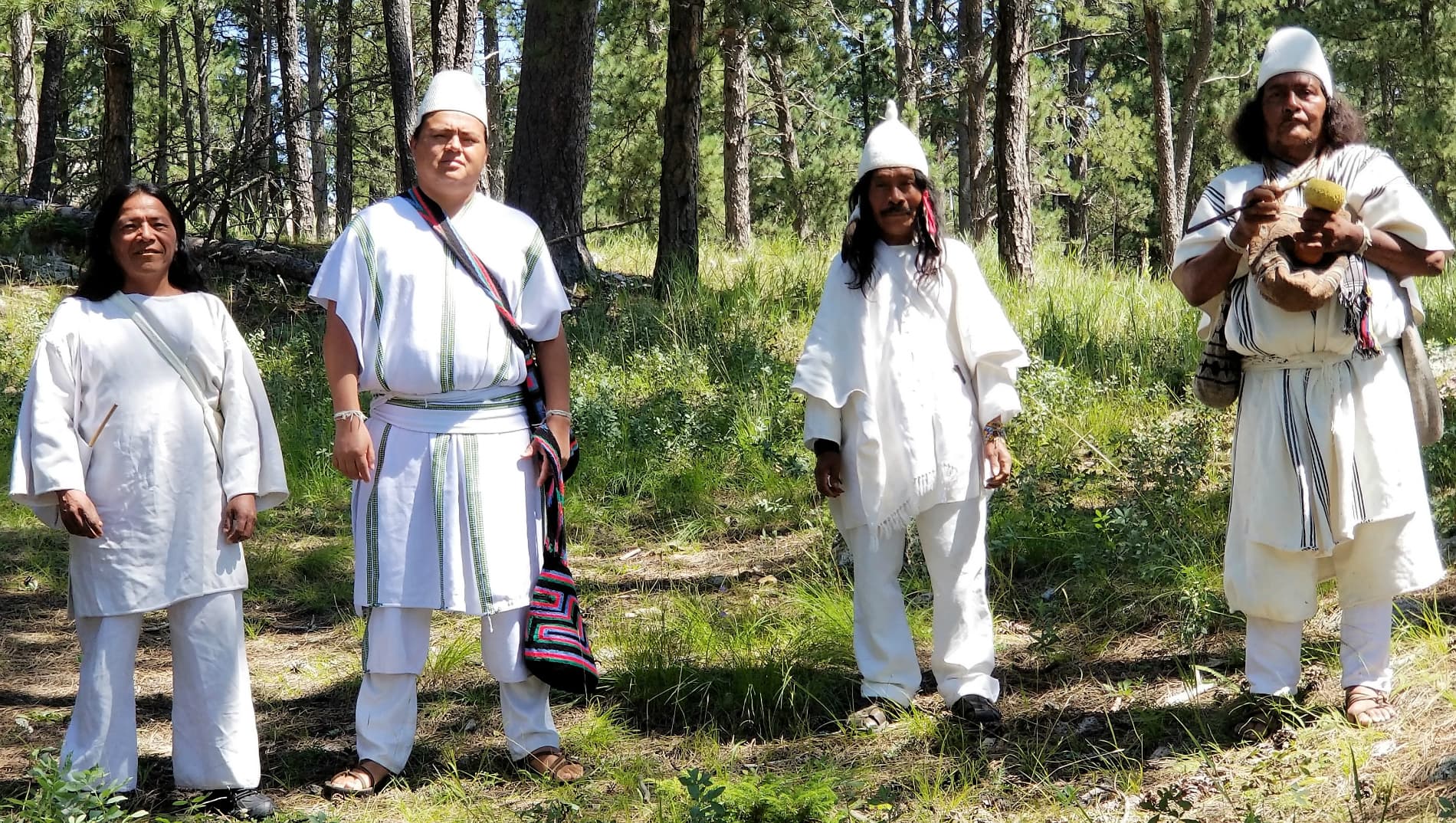 The Kogi (or Cogui or Kágaba) live in the Sierra Nevada of Santa Marta in northern Colombia. They are one of four indigenous peoples in the mountainous region, who refer to themselves as the Elder Brothers living in the “Heart of the World” (the Sierra Nevada of Santa Marta). Those not living in the Heart of the World are called “Younger Brothers.”
The Kogi (or Cogui or Kágaba) live in the Sierra Nevada of Santa Marta in northern Colombia. They are one of four indigenous peoples in the mountainous region, who refer to themselves as the Elder Brothers living in the “Heart of the World” (the Sierra Nevada of Santa Marta). Those not living in the Heart of the World are called “Younger Brothers.”
The Kogi base their lifestyles on their belief in “The Great Mother,” their creator figure, whom they believe is the force behind nature, providing guidance. The Kogi’s understand the Earth to be a living being, and see the colonizers’ mining, building, pollution and other activities damaging the Great Mother.
From birth the Kogi’s attune their priests, called Mamas, to the mystic world called Aluna. It is in this “spirit-realm” that the Mamas operate to help the Great Mother sustain the Earth. Through deep meditation and symbolic offerings, the Mamas believe they support the balance of harmony and creativity in the world. It is also in this realm that the essence of agriculture is nurtured: seeds are blessed in Aluna before being planted, to ensure they grow successfully.
The Kogi, along with the Wiwa, Arhuaco and Kankuamo–direct descendants of the Tayrona–are one of the few indigenous peoples in the western hemisphere to have almost no historical contact with outsiders due to their adopted survival strategy of isolation from the ‘civilized’ world.
Today, however, they are, like other Indigenous Peoples in Colombia, caught in the ongoing conflict between Colombia and Illegal armed groups like FARC and ELN.
Adapted from Wikipedia’s article on the Kogi People




